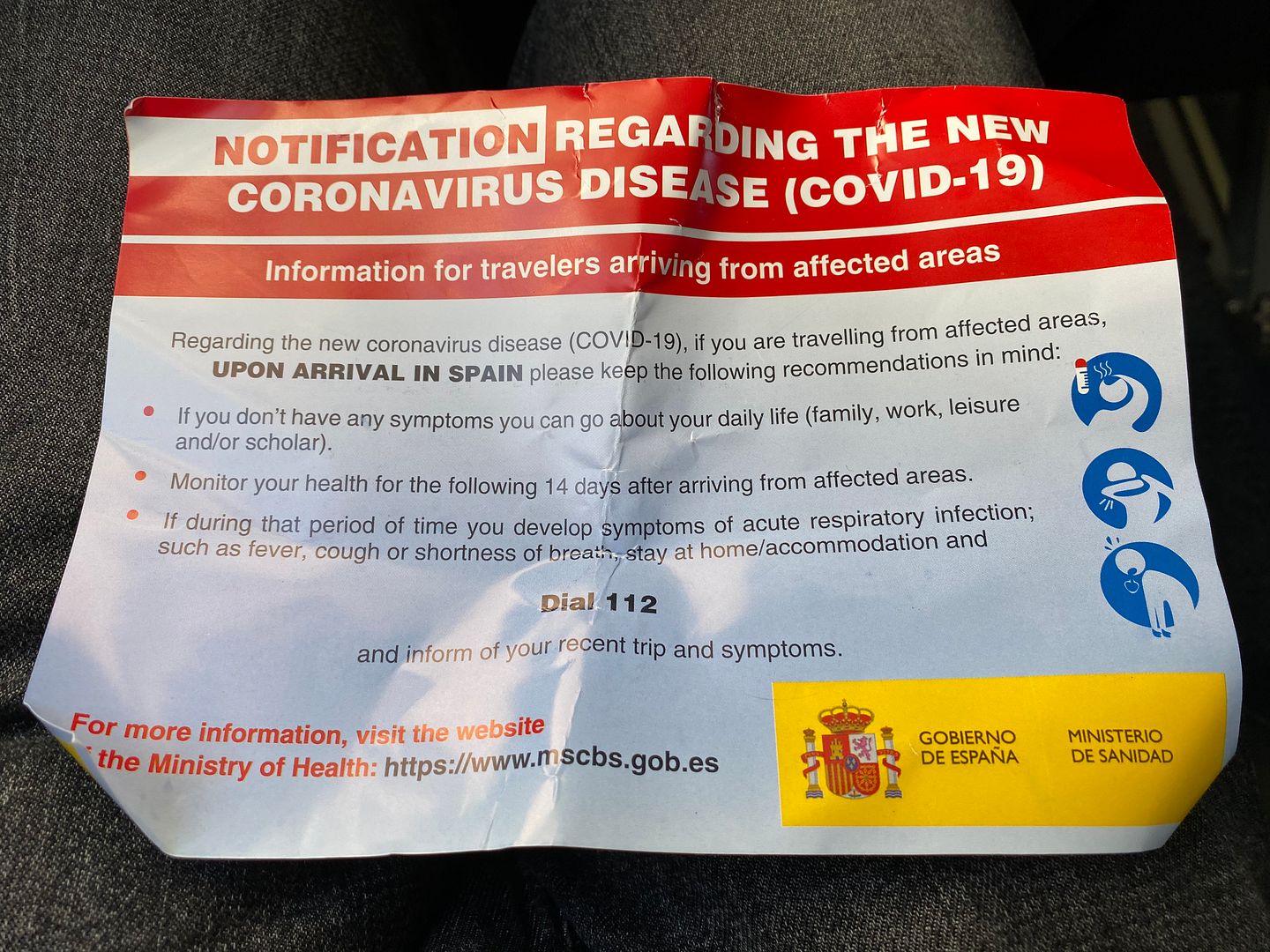A Taiwan non hanno mai preso bene il blocco italiano, e questo articolo lo conferma
Italy’s ignorance must be checked
By Tzou Jiing-wen 鄒景雯
In total disregard of Taiwan’s efforts to prevent the spread of COVID-19, the Italian government on Feb. 2 suspended all flights from Taiwan. Then, on Feb. 25, it announced that anyone entering Italy who had recently stopped in Taiwan must undergo mandatory home quarantine for 14 days.
This is anti-scientific, runs contrary to the norms of epidemic prevention and damages the dignity of Taiwan. It amounts to serious discrimination and Taiwanese should strenuously oppose it. The government must take immediate countermeasures.
When the Italian government took the initial, wrongheaded decision to ban flights from Taiwan, most Taiwanese refrained from attacking it, hoping that a diplomatic solution could be found.
Within three weeks, Italian authorities proved themselves utterly incompetent in preventing the spread of the coronavirus inside their own borders, yet despite mounting problems in their own country, they decided to inconvenience Taiwanese.
Given the repeated hostility Italy has shown toward Taiwan, it is time to get off the fence.
China Airlines, with its direct flight to Rome, bore the brunt of Italy’s initial crude treatment, and EVA Airways was compelled to postpone the opening of a new route to Milan. Travelers were left scrambling to find places on alternative flights and this resulted in a domino effect of financial losses.
When Italy made the decision to ban flights from Taiwan, this nation only had 10 confirmed cases of COVID-19, while Japan had 20 confirmed cases.
While the Italian government designated Taiwan an epidemic area, it continued to allow Taiwanese to pass through its borders, while at its airports, Taiwanese travelers continued to enjoy priority immigration clearance.
This demonstrates that the decision to include Taiwan as part of the outbreak in China was a political decision by the Italian government to adhere to the WHO’s absurd “one China” definition.
Now, Italy has once again thrown Taiwan into the “one China” melting pot.
Italy has imposed home quarantine measures on anyone entering the nation on or after Feb. 7 who has recently stopped in Taiwan, irrespective of their nationality. It is bad enough that Taiwanese travelers must rip up their travel itineraries, but the decision also does great damage to Taiwan’s image on the international stage.
Italy has many more confirmed cases of COVID-19 than Taiwan, as well as far more deaths.
On Thursday last week, the Central Epidemic Command Center elevated its travel notice for Italy to a level 3 “alert”: all travelers arriving from Italy, regardless of nationality, are to undergo a 14-day home quarantine. This is because the coronavirus has spread from Italy to other nations in Europe, and even as far as South America.
The outbreak has already reached a crisis point in Italy, which is now acting as a virus super vector.
It is therefore totally irrational for the Italian government, whose epidemic prevention methods have failed, to enforce mandatory quarantine measures on anyone who has traveled through Taiwan, while simultaneously refraining from applying comparable measures to people traveling from other nations that have lost control of attempts to prevent the coronavirus spreading.
Italy’s decision punishes Italians and other nationals who have traveled through Taiwan. At an individual level and a national level, Taiwan must stand up for the rights of its people and not allow the Italian government to make a fool of the nation.
Representative to Italy Lee Sing-ying (李新穎), although only in his post for just over a year and on his second diplomatic mission, is duty bound to make a stern representation to the Italian government.
Although Italy is a different kettle of fish from Vietnam and the Philippines — who have also placed travel bans or restrictions on Taiwanese — the government should treat Italy in the same fashion and carry out a detailed review of its bilateral dealings with Rome. It should also appeal to pro-Taiwan forces within the Italian parliament and civic organizations to develop ways to exert pressure on the Italian government.
Taiwan’s civic organizations also have a role to play in raising Taiwanese awareness of Italy’s unfriendly treatment toward the nation. For instance, last year 27,717 Taiwanese tourists traveled to Italy — a decline over recent years. The numbers could fall further if Taiwanese begin to boycott the nation.
Italy also operates a trade surplus with Taiwan. Last year, Taiwan exported approximately US$2 billion of goods to Italy and imported US$2.6 billion.
Whether Taiwan should continue to accept this trade surplus should at the very least be up for discussion.
Although these measures in and of themselves would likely be insufficient to change minds in Rome, it would certainly send a strong signal of Taipei’s intent: Taiwan does not intend to take this lying down.
Tzou Jiing-wen is the editor-in-chief of the Liberty Times (the sister newspaper of the Taipei Times).
http://www.taipeitimes.com/News/editorials/archives/2020/03/06/2003732157

